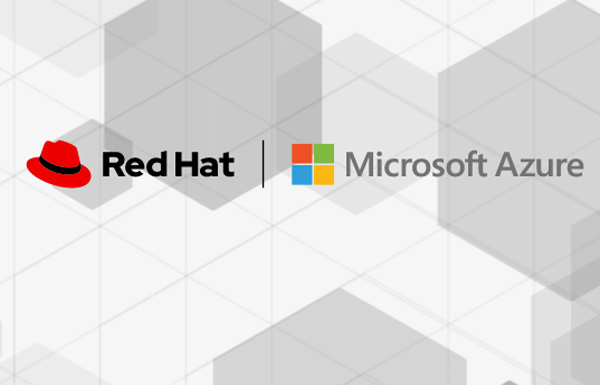
Azure Red Hat OpenShift on OpenShift 4 announced
DUBAI, May 17, 2020
Extending their work together in the hybrid cloud, Microsoft and Red Hat announced the general availability of Azure Red Hat OpenShift on OpenShift 4, at the Red Hat Summit virtual experience today.
For the past several years, Red Hat and Microsoft have worked together to co-develop hybrid cloud solutions intended to enable greater customer innovation. Last year, at Red Hat Summit 2019, Red Hat and Microsoft announced the general availability of Azure Red Hat OpenShift, the industry’s first jointly-engineered, managed and supported OpenShift service on a leading public cloud.
Sathish Balakrishnan, vice president, hosted platforms at Red Hat, said: “Azure Red Hat OpenShift enables you to create clusters in minutes, in a self-service fashion. Because this is a fully managed service, there are no VMs for you to manage. Patching, upgrading, repair, and disaster recovery are all handled for you as part of the service with best in class proactive 24/7 management and support from both Microsoft and Red Hat.”
With this release, Red Hat is adding new key features to Azure Red Hat OpenShift, including:
Cluster-admin support: Enables the cluster-admin role on Azure Red Hat OpenShift clusters, enabling full cluster customization capabilities, such as running privileged containers and installing Custom Resource Definitions (CRDs).
Cluster Autoscaling: Use the ClusterAutoscaler and MachineAutoscalers to automatically adjust the size of your cluster to meet current demand. Mix and match virtual machine sizes to your workloads.
Multi-Availability Zones clusters: To deliver high levels of resiliency, cluster components are now deployed across 3 Azure Availability Zones in supported Azure regions to maintain high availability for your most demanding mission-critical applications and data. Azure Red Hat OpenShift has a Service Level Agreement (SLA) of 99.9%.
Industry compliance certifications: To help you meet your compliance obligations across regulated industries and markets worldwide, Azure Red Hat OpenShift is now PCI DSS, FedRAMP High and HITRUST certified. Azure maintains a large compliance portfolio both in terms of total number of offerings, as well as number of customer-facing services in assessment scope.
Bring your own identity provider: In addition to supporting authentication and authorization using Azure Active Directory, customers can now connect their supported identity providers, for example using OpenID Connect.
Private API and ingress endpoints: Customers can now choose between public and private cluster management (API) and ingress endpoints. With private endpoints and Azure Express Route support Red Hat is enabling private hybrid clusters, allowing our mutual customers to extend their on-premises solutions to Azure.
OpenShift 4 is the industry’s most comprehensive enterprise Kubernetes platform, driven by the innovation of Kubernetes Operators to deliver full-stack automation from top to bottom. From Kubernetes to the core services that support OpenShift clusters to the application services deployed by end users; everything is managed - TradeArabia News Service







